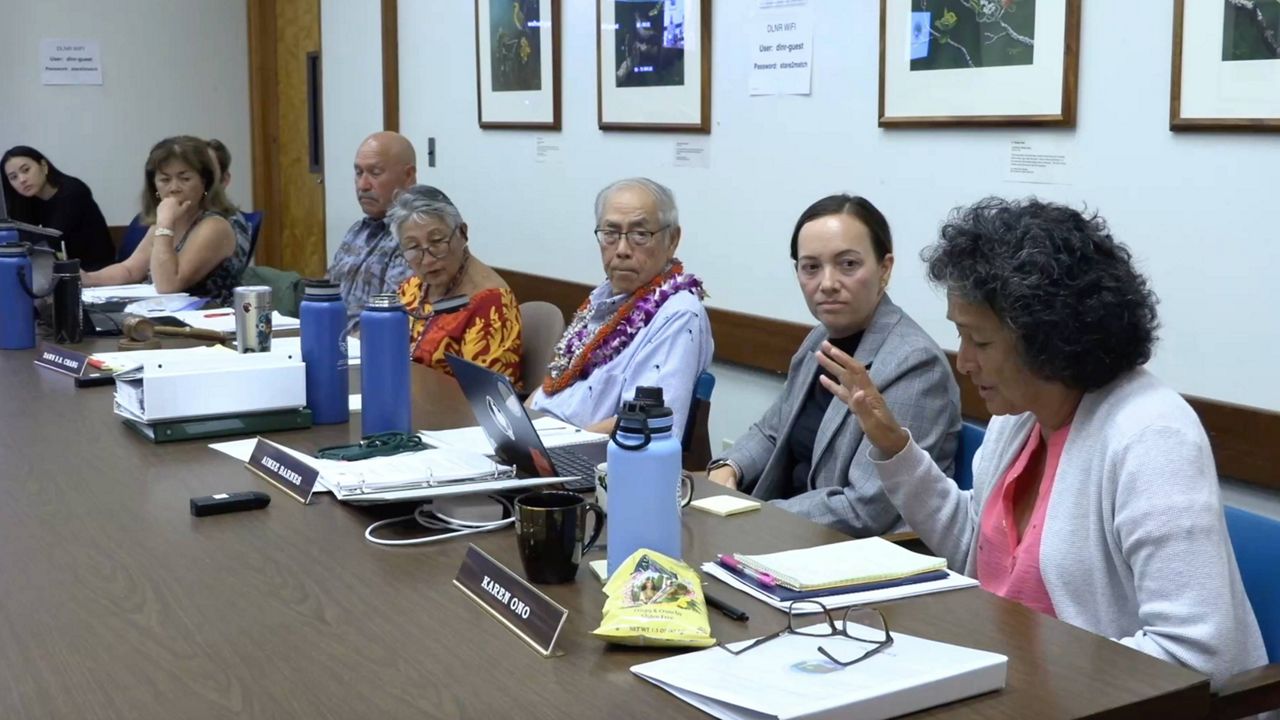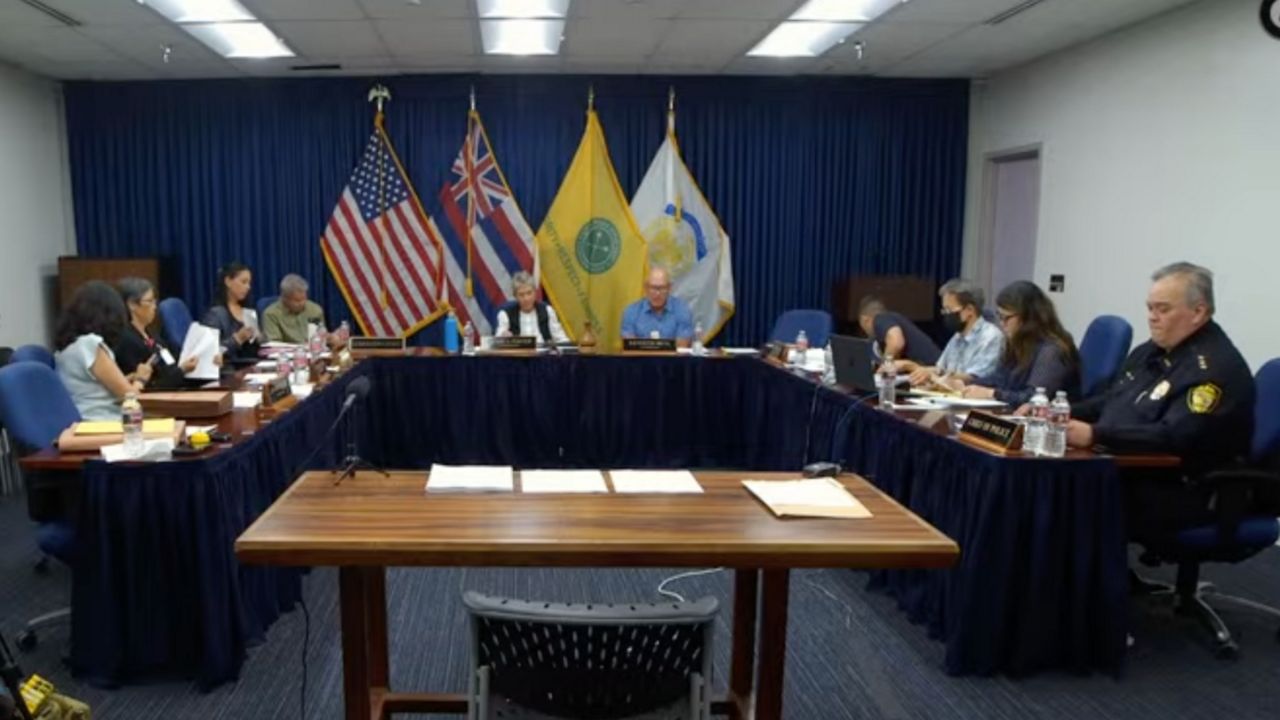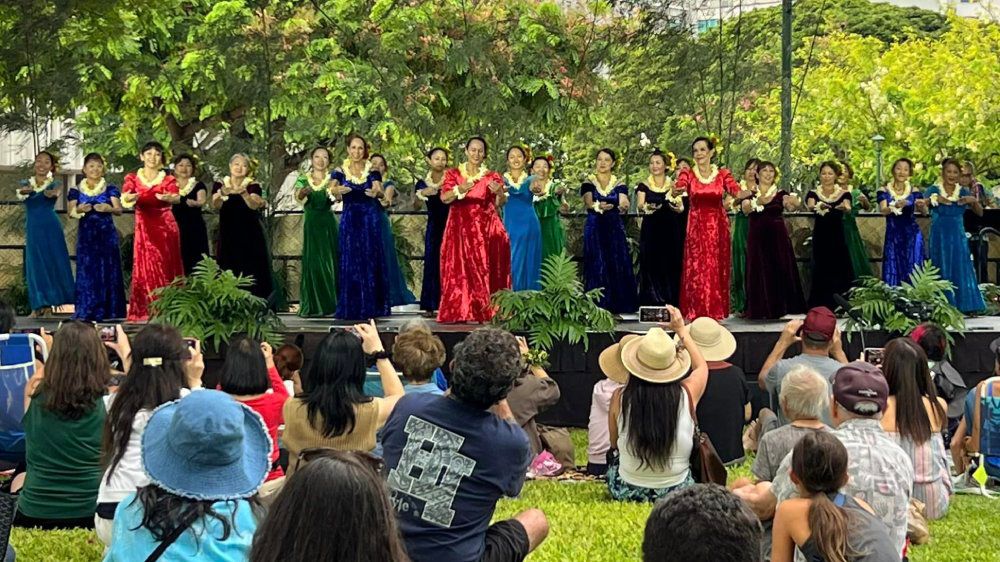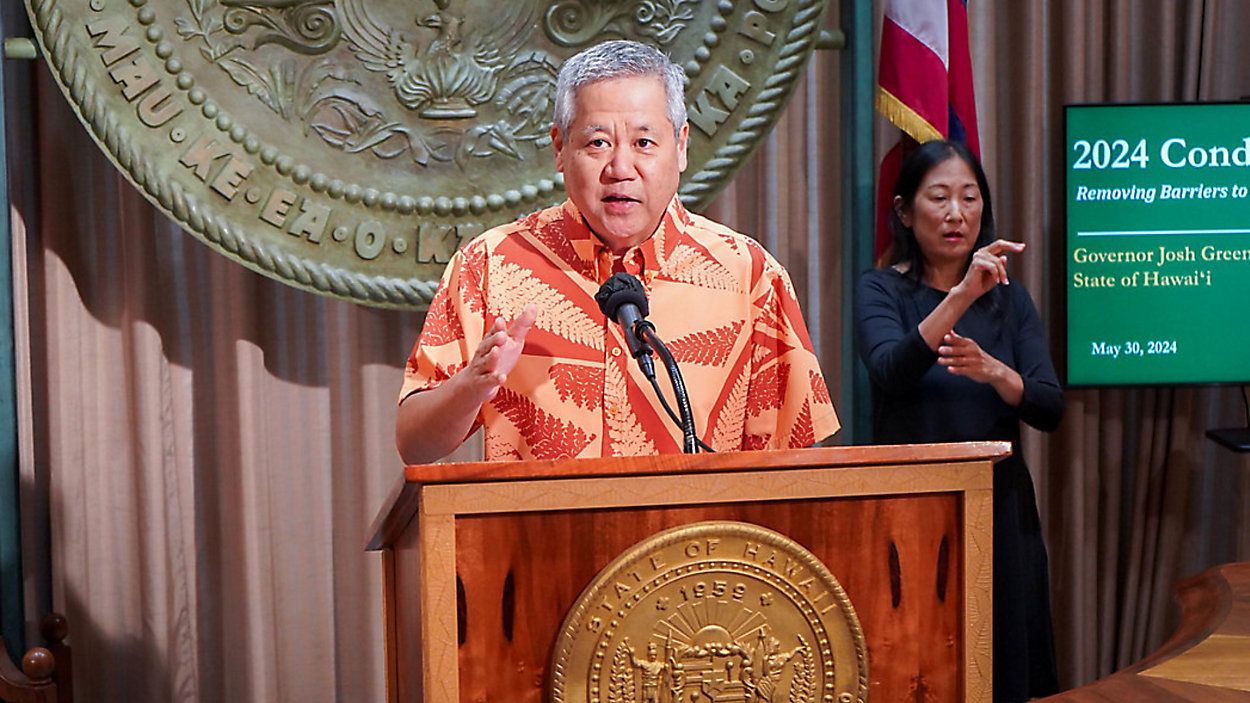The state Board of Land and Natural Resources voted Friday to reject the U.S. Army’s final environmental impact statement for the retention of state-leased portions of Kahuku Training Area, the Kawailoa-Poamoho Training Area and the Makua Military Reservation.
The decision is the latest blow to the Army’s efforts to renegotiate the lease of state land for training purposes. Last month, BLNR voted not to accept the Army’s FEIS for the Pohakuloa Training Area on Hawaii Island.
“The action before the BLNR was whether to accept or non-acceptance of the FEIS based upon specific legal criteria set forth in Hawaii Revised Statutes Chapter 343 and relevant administrative rules,” said DLNR chair Dawn Chang. “Applying the legal criteria to the FEIS, reviewing hundreds of written and oral testimonies, as well as comments from DLNR’s own divisions, the BLNR members voted to not accept the FEIS. The FEIS did not meet that bar.”
As part of its review of the FEIS, DLNR’s Land Division consulted with other divisions within the department, including the Commission on Water Resources Management, the Division of Aquatic Resources, the Division of Forestry and Wildlife, the Office of Conservation and Coastal Lands and the State Historic Preservation.
The Land Division recommended that BLNR not accept the FEIS due to a lack of baseline data to enable DLNR and BLNR to determine and understand the extent of any impacts to natural, historical and cultural resources.
Specifically, Land Division staff determined that the FEIS fell short in adequately accounting for known and likely archaeological sites and lacked recent data for biological resources and the absence of stream aquatic surveys. The concerns were raised in the draft EIS phase, but remained unaddressed in the final report.
The Army’s current lease for more than 6,000 acres of state-owned land at the three Oahu sites is set to expire in 2029. The Army would need to revise and resubmit its FEIS to apply for a new lease.
Gov. Josh Green said the FEIS underscores the need for continued dialogue and shared responsibility but expressed a hope that the state’s contribution to military preparedness would continue in improved fashion.
“The Army’s proposal to retain a smaller footprint on Oahu reflects a commitment to align important military training with community and environmental considerations,” Green said. “We acknowledge and appreciate the Army’s dedicated engagement throughout this process. As global threats grow more complex and regional stability becomes more fragile, Hawaii’s unique position at the heart of the Indo-Pacific makes it vital to the defense of both our islands and the nation, highlighting the importance of maintaining military readiness that is both effective and accountable to the communities it serves.
“Ensuring our Armed Forces remain prepared and resilient is a priority, and as we move forward, my administration is committed to working with all parties to ensure that next steps are guided by transparency, a shared sense of purpose, kuleana to future generations and long-term benefit to the people of Hawaii.”
Hawaii’s Congressional delegation released a joint statement on Friday supporting continued dialogue on a new lease for the three training areas.
“Hawaii plays a crucial role in supporting our country’s national security, particularly in the Indo-Pacific region,” said U.S. Sens. Mazie Hirono and Brian Schatz and Reps. Ed Case and Jill Tokuda, all D-Hawaii. “We acknowledge the Board of Land and Natural Resources’ decision and support a path forward that accounts for Hawaii’s role in our military readiness, as well as the concerns and needs of the people of Hawaii. As discussions progress towards a mutually acceptable result, our congressional delegation is committed to working closely with Governor Green, Department of Defense leadership and members of our community throughout this important process.”
Local environmental groups lauded BLNR’s decision.
“This decision is a long-overdue stand against the historic destruction of Oahu’s sacred and irreplaceable places,” said Maxx Phillips, Hawaii and Pacific Islands director and staff attorney at the Center for Biological Diversity. “The board finally said enough is enough after decades of the Army carelessly carving up these lands, burning native forests and bulldozing cultural sites. This land doesn’t belong to the military; it belongs to the people, to the ancestors buried here and to the rare life still surviving in these places.”
Sierra Club of Hawaii director Wayne Tanaka said the Department of Defense’s history in the state warrants continued scrutiny and skepticism of its commitment to responsible environmental stewardship and public safety.
“There are so many examples just on this island of the Army, and U.S. military as a whole, dismissing the environmental and health concerns of Hawaii residents,” he said. “From exposing schoolchildren to toxic lead dust at its Puuloa firing range, to covering up the use of depleted uranium at Schofield, to contaminating our primary drinking water aquifer at Red Hill and Waiawa, the Department of Defense simply can’t, or won’t, prioritize our safety. Hopefully, the military will see that Hawaii’s people will no longer tolerate their callous disregard for our home and our lives.”
The Office of Hawaiian Affairs also supported BLNR’s rejection of the FEIS.
“This decision affirms the concerns raised by Native Hawaiians, environmental experts and cultural practitioners throughout the public process,” said OHA chair Kaialii Kahele in a statement released Friday afternoon. “The FEIS failed to adequately disclose the cultural and environmental impacts of the Army’s continued use and retention of lands that are not merely ‘state lands,’ but part of the Crown and Government Lands of the Hawaiian Kingdom — taken without consent after the illegal overthrow and now held in trust by the State and OHA for the benefit of Native Hawaiians and the public. These trust lands carry profound historical and cultural significance for Native Hawaiians, requiring that any future decisions be guided by transparency and the fiduciary obligations owed to them and to the people of Hawaii.
“As the U.S. Army, the state, and Hawaii’s Congressional delegation consider next steps, OHA remains steadfast in its mission to protect Native Hawaiian rights and to ensure that decisions regarding these lands honor the State’s trust responsibilities and the unrelinquished claims of the Hawaiian people,” Kahele continued. “The public trust demands vigilance — not silence or political convenience — and the kuleana to protect our ancestral lands belongs to all of us.
Michael Tsai covers local and state politics for Spectrum News Hawaii. He can be reached at michael.tsai@charter.com.








0718)


